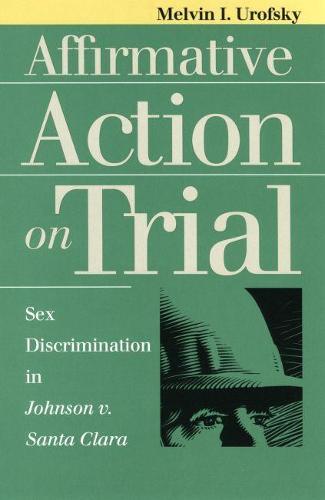Overview
Affirmative action continues to be one of the most hotly contested issues in America. Volatile and divisive, the debates over its legitimacy have inspired a number of ""reverse discrimination"" suits in the federal courts. Like the landmark 1978 Bakke decision, most of these have focused on preferential treatment given racial minorities. In Johnson v. Santa Clara, however, the central issue was gender, not race discrimination, and the Supreme Court's decision in that case marked a resounding victory for women in the work force. Johnson v. Santa Clara involved two people who in 1980 competed for a dispatcher position with the transportation department of Santa Clara County, California. Paul Johnson had more experience and slightly higher test scores, but Diane Joyce was given the job based on affirmative action. An irate Johnson sued the county and won, only to have the decision reversed in appellate court. That reversal was subsequently upheld in the Supreme Court's 1987 decision, reaffirming that it was legitimate for employers to consider gender in hiring. Preeminent legal historian Melvin Urofsky proves an exemplary guide through the complexities of this case as he takes us from the workplace through the various levels of our federal court system. Balancing the particulars of the case with an overview of constitutional law and judicial process, he creates a model legal history that is both appealing and enlightening for the non-scholar. Urofsky is especially good at highlighting the fundamental human drama of this case and shows how Johnson and Joyce were simply ordinary people, each with valid reasons for their actions, but both ultimately caught up in legal and social issues that reached well beyond their own lives. Affirmative Action on Trial pointedly addresses the issue of sex discrimination and the broader controversy over the place of affirmative action in American society. The latter continues to generate headlines, like those that followed the 1996 Supreme Court decision to let stand a lower-court ruling that race cannot be used as a determination for admission to academic programs. More recently, several states have even taken steps to end affirmative action altogether. While it's hard to tell how such actions will ultimately impact affirmative action, there's no question that the rulings in cases like Johnson v. Santa Clara will continue to guide and influence the debates both inside and outside the courtroom.
Full Product Details
Author: Melvin I. Urofsky
Publisher: University Press of Kansas
Imprint: University Press of Kansas
Dimensions:
Width: 14.00cm
, Height: 1.40cm
, Length: 21.60cm
Weight: 0.333kg
ISBN: 9780700608300
ISBN 10: 0700608303
Pages: 208
Publication Date: 29 April 1997
Audience:
Professional and scholarly
,
College/higher education
,
Professional & Vocational
,
Undergraduate
Format: Paperback
Publisher's Status: Active
Availability: Out of stock

The supplier is temporarily out of stock of this item. It will be ordered for you on backorder and shipped when it becomes available.
Reviews
Melvin Urofsky has crafted not only a probing analysis of the law involving affirmative action, but he has also told a poignant story about the lives of ordinary people in the legal process. The result is a book that is an ideal primer on affirmative action, both as a contested political and legal issue and, as significantly, an emotional roller coaster for those caught up in it. --<b>Kermit Hall</b>, author of <i>The Magic Mirror: Law in American History</i> Teachers will welcome this book as an unparalleled blend of exacting legal scholarship with engaging narrative history. Urofsky skillfully weaves dialogue, novelistic narrative, and extensive interview quotes with discerning policy and legal analysis. In the grand tradition of Anthony Lewis, he shows how great movements in law and society impact ordinary people, and how their universal striving for fair play and equal treatment moves legal discourse. Students and teachers alike will cherish this book. --<b>William M. Wiecek</b>, author of <i>Liberty under Law: The Supreme Court in American Life</i> Urofsky's volume is a boon to those attempting to understand the current debate about affirmative action. Taking one case as his text, he presents the arguments on both sides, explores the societal setting that produced the controversy, and explains both the legal decisions that have been an important element in the debate and the steps the case followed in its journey to the Supreme Court. He never forgets that the story he is telling involves real people, who spring to life in these pages and provide a human face to the debate and to the judicial process. He remembers that he is also writing for real people, and he does so beautifully. There could not be a better way of learning about the interaction between societal problems and the law in the United States. --<b>Phillipa Strum</b>, author of <i>Louis Brandeis: Justice for the People</i>




